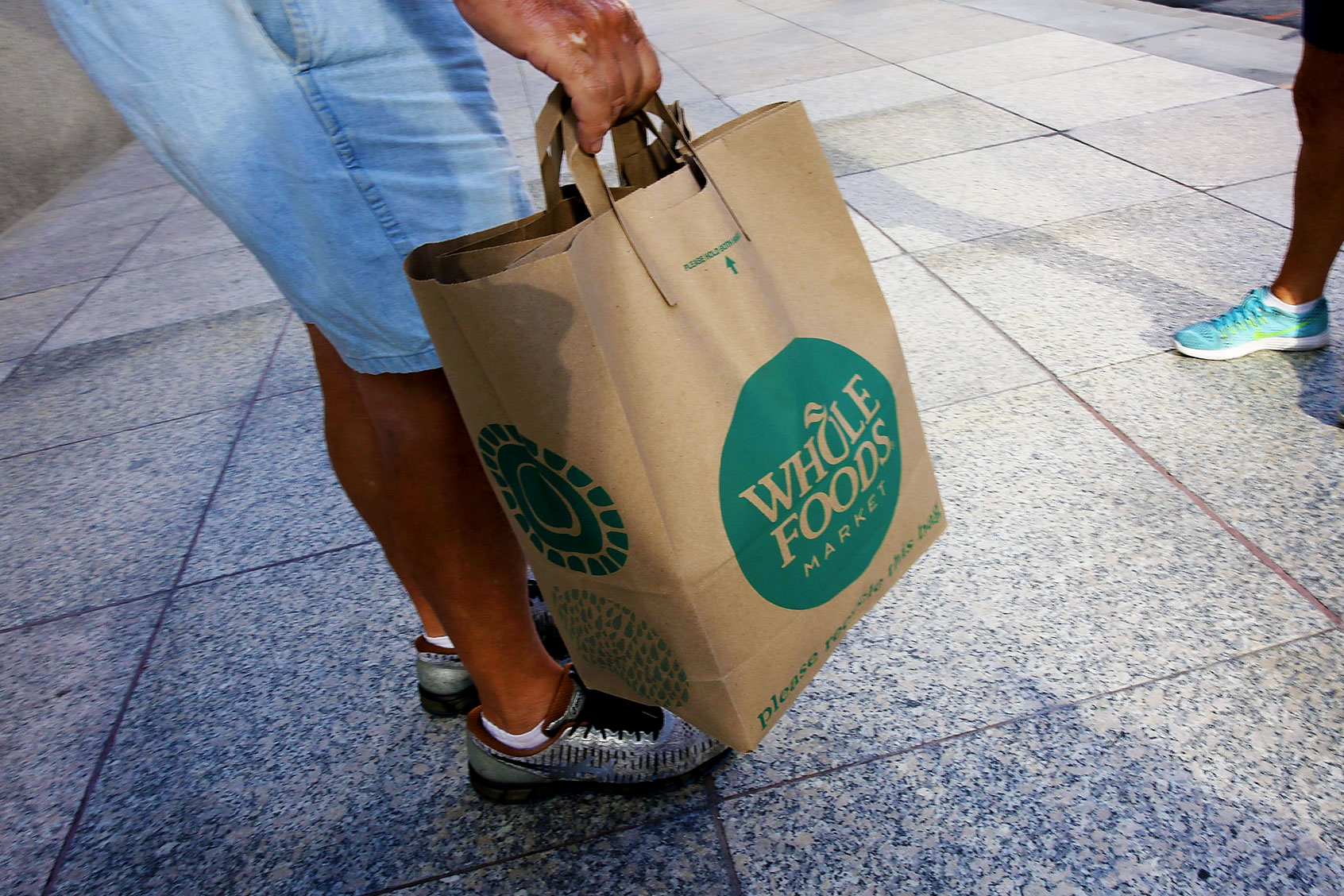September is already shaping up to be a big month for Whole Foods Market. John Mackey, the organic supermarket chain’s controversial original co-founder and chief executive officer, retired last week. His replacement, former Whole Foods chief operations officer Jason Buechel, has announced plans to “reconnect” to the company’s heritage.
That may be difficult, critics have pointed out, as this year also marks the fifth anniversary of Amazon acquiring Whole Foods, a partnership that in 2017 seemed antithetical to the wholesome and (slightly) countercultural image the market had cultivated since its inception in 1980.
But while kombucha cases and ample vegan options may signal to shoppers that this isn’t your average American grocery store, they alone don’t hedge businesses against the grinding gears of capitalism.
As the New York Times reported in 2017, the $13.7 billion cash deal for Whole Foods “represent[ed] a major escalation in the company’s long-running battle with Walmart, the largest grocery retailer in the United States, which has been struggling to play catch-up in internet shopping.”
While kombucha cases and ample vegan options may signal to shoppers that this isn’t your average American grocery store, they alone don’t hedge businesses against the grinding gears of capitalism.
At the time, Amazon was struggling to become a major player in the food and beverage sector. Despite having sold groceries online since the late 2000s, consumers didn’t associate the e-commerce giant with buying their weekly produce and meat.
Acquiring Whole Foods was a sure way to change that perception — and it did.
The Amazon acquisition also brought some positives to the company. According to CNBC, Whole Foods has added 3,000 local brands in the past five years — a 30% increase since before the Amazon deal. Additionally, Whole Foods told the outlet it had “more than doubled its list of banned food ingredients, bringing the total to more than 250.”
Whole Foods prohibits ingredients, such as hydrogenated fats, high fructose corn syrup and artificial sweeteners. Meanwhile, meat must be free of antibiotics and added hormones.
However, the move also polarized some Whole Foods customers, who expressed concerns that the purchase might impact how both employees and small-scale producers would be treated under the new regime.
A year after the purchase, a group of Whole Foods staffers emailed thousands of fellow workers with a list of takeover-related grievances, including the removal of some stock options and “constantly being asked to do more with less resources and now with less compensation.”
Want more great food writing and recipes? Subscribe to Salon Food’s newsletter, The Bite.
Some workers attempted to unionize under the large Retail, Wholesale and Department Store Union, though those efforts have stalled. Moreover, amid the pandemic, Amazon and Whole Foods workers coordinated numerous protests, decrying the lack of safety guidelines to limit the risk of coronavirus, as well as limited paid sick leave.
Now, five years and a global pandemic later, Buechel says he wants to return to the company’s “core values.”
“One of my top goals is to reignite the connection to our higher purpose, mission and core values with our team members,” said Beauchel during a panel at the recent Wall Street Journal’s Global Food Forum. “We’ve been through a lot.”
However, Jess Weidauer, principal at SSR Retail, wrote on RetailWire that “reconnecting with the Whole Foods’ ‘higher purpose’ can’t be done as long as Amazon holds the keys.”
“It’s little more than an Amazon locker that sells food.”
He continued, “After five years it’s clear that Amazon doesn’t really know what to do with Whole Foods — there is no overarching purpose or meaning apparent any longer. It’s little more than an Amazon locker that sells food.”
Brian Delph, the chief executive officer of New Sega Home, agreed.
“Perception is reality,” Delph added. “Whole Foods will never be able to shake consumer awareness that it is attached to Amazon. This association completely distracts from any efforts made towards a high-purpose and will always negate efforts unless it’s separated in the future.”
Read more
about this topic


